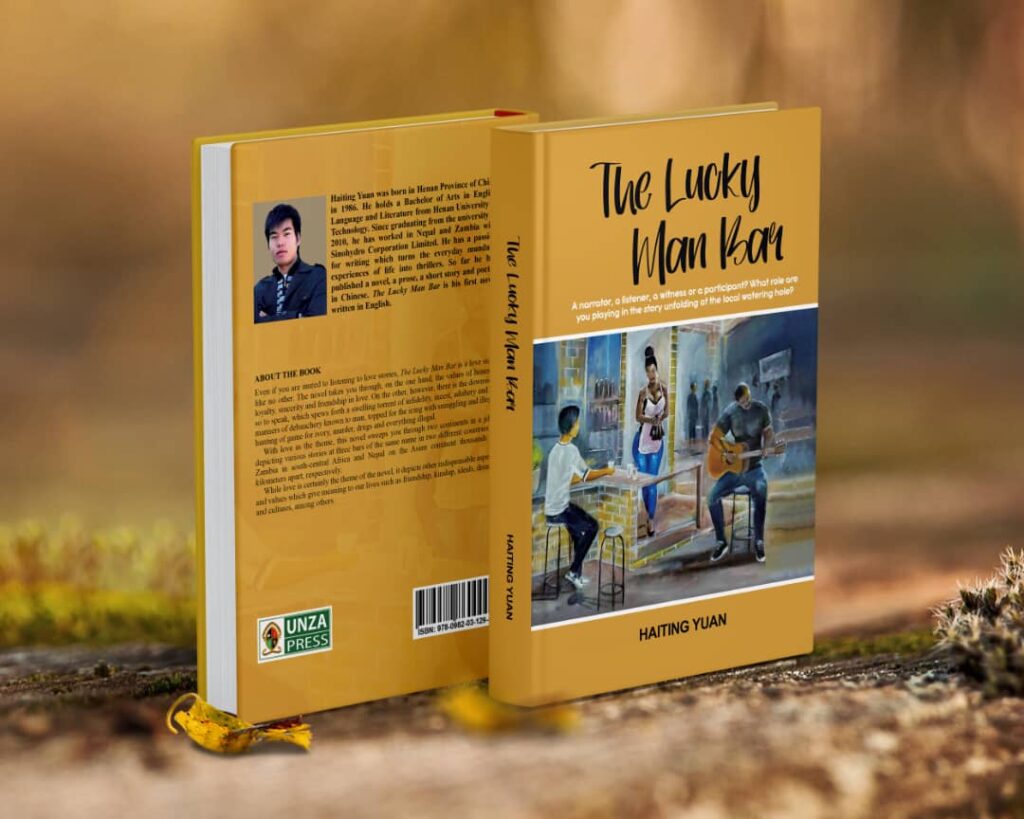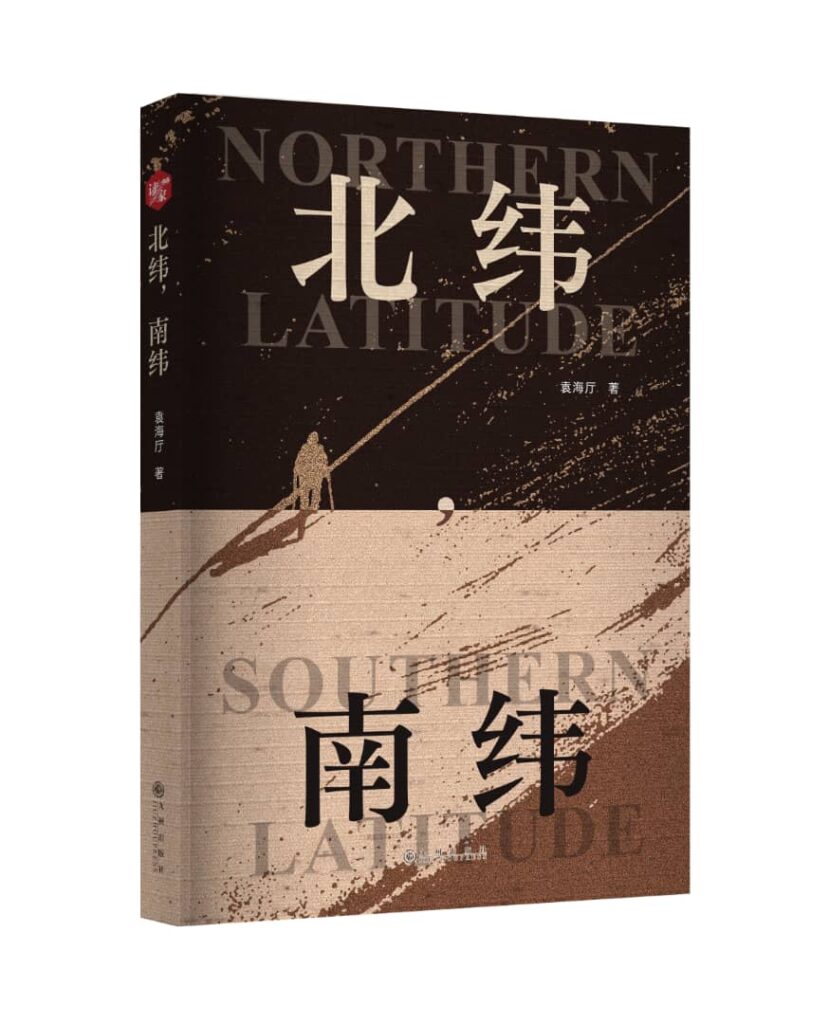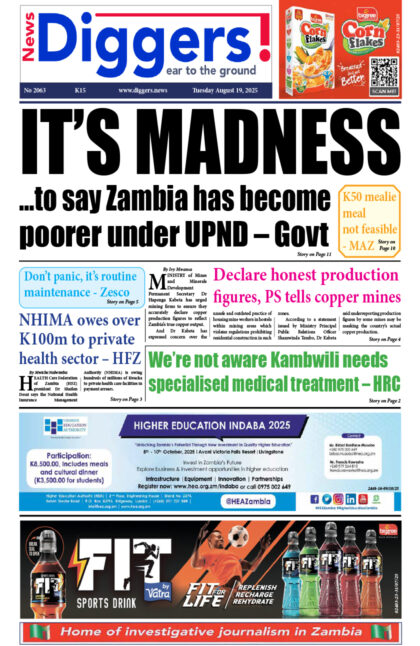Which country is Zambia? Where exactly is it located? I had absolutely no idea about the country when the company told me I would be transferred from Nepal where I was then working to this new place which sounded both distant and strange.
With a dozen unanswered questions on my mind, I boarded the airplane from Beijing to Lusaka via Addis Ababa on 6th November 2015, flying all the way across early winter in China to early summer in Zambia. The moment I stepped out of the airplane at Kenneth Kaunda International Airport, clean, bright sunlight and warm, fresh air gave me a big hug, like a family or an old friend holding me in their arms after being apart for so long. Instantly, I was free from the exhaustion of the odyssey.
Upon my arrival in Zambia, I was assigned to work on the Kafue Gorge Lower Hydroelectric Project in the Chikankata District of the Southern Province of the country. I worked there for seven years until the company transferred me to the Kingdom of Lesotho, a country located further south of Zambia.
My seven-year tour of duty in Zambia added more questions to my initial questions about the country: What is “Zambia”? What does it mean?
They say curiosity killed the cat, but in my case curiosity only deepened my interest in Zambia and the African continent as a whole. Considering the fact that I was not only a foreigner but also came from a culture fundamentally different from that of Zambia and Africa, it was never going to be easy to quickly gain an in-depth understanding of Zambia and the African continent. The challenge was compounded by the fact that Zambia and Africa comprised a complex “body” of “tissues” and “organs” that I had to surgically observe and dissect with the raw capacity of a “first-year medical student,” in a manner of speaking. This challenge, however, did not deter me from seeking answers to the tough questions that raced through my mind.
More importantly, I knew I would not be alone on my journey of discovery: many Zambians would walk with me in the form of colleagues, workmates, friends – strangers, even. I did not care about whom they were – social status, educational background – these so called “labels”meant nothing to me. What really mattered was just “brotherhood” since we were all born equal in a world where respect and unity make a difference.
I was so lucky to have so many Zambians ready to help in my need at any time and in return I would share with them as much as I could without any hesitation. My own experience kept telling me how innocent, respectful, hospitable, and optimistic they were and how much they would make me feel protected and welcome wherever I went and whoever I interacted with. The longer I lived in Zambia, a fertile land of 750,000km2, the more convinced I became that this beautiful nation was like a caring mother: she let her children in the shape of human beings live in harmony and peaceful co-existence with her mountains, rivers, trees, animals and mines. Hence I kept reminding myself: “Yuan, keep in mind the fact that you are in Zambia and you are now part of the Zambian people, so just make yourself feel at home. Feel the people, talk to them and listen to them. Appreciate their land and animals. When they are in need, give them a smile, a hug or a hand.”
I took every chance and opportunity available to delve myself into exploring anything that could help me understand Zambia better. It could be asking a general worker to tell his own stories, a driver what crops were grown in a field, a sugarcane vendor if he was looking for any employment and a police officer what interesting case he once handled. Gradually, the Zambians I interacted with changed their perception of me because they realised I was different from what they thought I was or expected to see. I managed to make them understand and accept me because I showed them respect and friendliness and was honest and frank in my dealings. Nothing could make me happier than to hear them say I had become a half Zambian and was one of them.
I embarked on the process of painting a 3D “portrait” of Zambia and Africa, a “blue-print” of sorts. The “blue-print” took shape with the help of Zambians from all walks of life and different social strata: common workers, young artists, government officials, NGO staff, children, passers-by, among others, all added their voices and stories to the “blue-print”. The “blue-print” was an ambitious plan which as a matter of fact had dawned on me even before I left China for Zambia; and at the time it was just a vague and unpolished idea. It was in Zambia, therefore, that this idea took shape as people shared their stories and experiences. My plan was to write a piece of literature – a novel to be specific – that would tell the world about Zambia and Africa.
It took more than five years for the book to be finished, from about September 2016 to March 2022. The project was by no means an easy undertaking, especially for a writer from a non-English speaking country. More than once I found myself on the verge of abandoning the journey. However, the strong passion for literature and the sense of mission to tell stories, as well as the love of Zambia and Africa coupled with spiritual support from my Zambian friends who were eager to see how Zambia would be portrayed through foreign eyes, kept me going. Thus, despite the many challenges I was able to finish writing the book.
As you may know, the book is titled The Lucky Man Bar. It is a record-breaking work standing as the first English novel by a Chinese on Zambia and Africa.
As the author, I am proud and grateful that my persistence as well as the support and input of Zambians made the work possible. The editing, cover designing, publishing and marketing were all done in collaboration with Zambian talents. The book project was, in a real sense, a product of the collective wisdom of Zambian and Chinese people.
The book lays emphasis on the importance of people-to-people cultural exchange, the possibility of cultural integration and the power of literature to reshape people’s views about the world and each other. The book also stresses my intention to become a sincere participant in the happenings of Zambia rather than be a mere spectator or passive witness. Hence despite being fictional, the novel is based on my real experiences and the numerous stories I heard from Zambians. Both in and outside the book, my life was intertwined with that of Zambians.
In the book review published in the Journal of Law and Social Sciences, Dr. Cheela Chilala from the University of Zambia, gives his comments: “The Lucky Man Bar is certainly not the best novel written about Africa by a non-African and has its fair share of flaws. Be that as it may, the work is a trail-blazer: first such work by a Chinese writer on Africa and on Zambia in particular. Haiting, it might be argued, takes the eminent place of way-paver to other Chinese writers. His novel, perhaps, also provides a template for non-Chinese writers with regard to how to handle the insider-outsider dichotomy, when writing about Africa or indeed any other culture other than theirs.”
And in the book review published in Africa, Cambridge University Press journal, Prof. Ignatius Chukwumah from the Federal University, Wukari, Nigeria, says “Yuan’s text is a tribute to the contemporary Sino-African relationship. I recommend it highly not only to literary scholars, political scientists and sociologists, but also to all Africanists and anyone desiring to know more about the burgeoning Afro-Chinese cultural interface.”
When The Lucky Man Bar was launched at the University of Zambia on 26th May 2022,Mr Lai Bo, the then Minister Counsellor of the Embassy of the People’s Republic of China in the Republic of Zambia said during his speech that the book profoundly contributed to the strengthening of the China-Zambia people-to-people exchange, cultural ties and longstanding friendship. These views were echoed by Esther Ng’ambi, the Director of Arts at the Ministry of Youth, Sport and Arts when she gave her speech. The positive and encouraging words shared by the two motivated me to make more contributions by way of writing and any other available means.
Hence, apart from writing books I also tried exploring other means of cultural exchange and collaboration. To this end I worked with young Zambian musician Brightness Mpende to produce six songs. Similarly, I collaborated with Zambian film directors Paul ShawilWilo and Cosmas N’gandwe to produce two movies entitled Bana Chanda and Service to Heart separately. Further, I donated all the funds raised from selling The Lucky Man Bar to young Zambian artists who were working on artistic projects. These philanthropic gestures were purely based on my strong sincere desire to assist local talents as well as to contribute to the promotion of the creative industry in Zambia. I consider these actions as a noble responsibility worth undertaking.
Despite leaving Zambia in August 2022, I still feel like I have not left because The Lucky Man Bar and the stories it contains are still in Zambia; a testament to the countless footprints I left on this vast land full of vitality and rhythm. No doubt the literary cultural tie that I weaved with Zambia will never break wherever I go. My body may be back in China, but a part of my heart remained in Zambia.
It is because of the literary cultural tie that I embarked on another book project: a new book entitled Northern Latitude, Southern Latitude, scheduled to be hit the bookshelves in January 2025. The book, which I have been working on for some time now, comprises four chapters, the first three of which respectively capture my diaspora experiences in Nepal, Zambia and Lesotho. The fourth and final chapter consists of articles and poems on other countries or regions of the world.
The chapter on Zambia consists of articles, poems, speeches and lyrics written by me, speeches by Zambian and Chinese government officials, news coverage by Zambian media, letters from Zambian government officials and international NGOs, book reviews by Zambian journalists and scholars as well as a review by a Nigerian scholar. In addition, nearly 200 pictures are included as illustrations. Collectively, the writings and illustrations paint a vivid picture of my seven-year-long experience living and working in Zambia. They focus on my personal efforts to contribute to the strengthening of Sino-Zambia people-to-people cultural interaction, integration and collaboration. They also epitomise the positive reaction and extensive support of the Zambian people and institutions covering a variety of fields and sectors.
Unlike The Lucky Man Bar which is fictional, Northern Latitude, Southern Latitude is characterised by a realistic perspective on life experiences. It exhibits vivid anecdotes, detailed descriptions, careful personal observations, and in-depth thinking. Written in Chinese, the book will initially be published in China. I am convinced, however, that the English version will at some point be available in Zambia in the same way that the Chinese version of The Lucky Man Bar will sit on the shelves
In retrospect, particularly when I consider the days I spent with the Zambian people from various social strata, I am profoundly and sincerely grateful for how they enriched my life; equally, I am grateful for my own passionate and persistent efforts aimed at transforming myself into a part of Zambian society. To be sure, the years I spent in Zambia were not a waste.
At the start of my sojourn in Zambia, I did not have any idea how to answer the questions “What is Zambia?” and “What does ‘Zambia’ mean?”In retrospect, after living in the country for seven years, I am now closer to arriving at answers than ever before. I do not know when I will be able to say for certain that I have the answers, but it might be soon, it might be much later. I am however motivated enough to keep telling myself, “Hey, Yuan! Keep it up! You are almost there.”
ABOUT THE AUTHOR
Born in 1986 in the Henan Province of China, Haiting Yuan holds a Bachelor of Arts degree, English Major, from the Henan University of Technology where he studied from 2006 to 2010. He has been working for SinohydroCorp., Ltd. since 2010. His first foreign posting was in Nepal before being transferred to Zambia and later Lesotho. During this period, he has work in different capacities: translator, interpreter, Human Resource Manager, Deputy Project Manager, among others. Yuan has dedicated his life, skills and resources to the promotion of people-to-people exchange and cultural collaboration between China and the countries where he worked.



























One Response
This remarkable initiative and courageous move made by this young writer, Mr Yuan, hopefully, will go on to resonate, affecting many writers to come.
His works will be a wonderful inspiration to intercontinental art, music, cultural and socioeconomic relationships lies ahead.